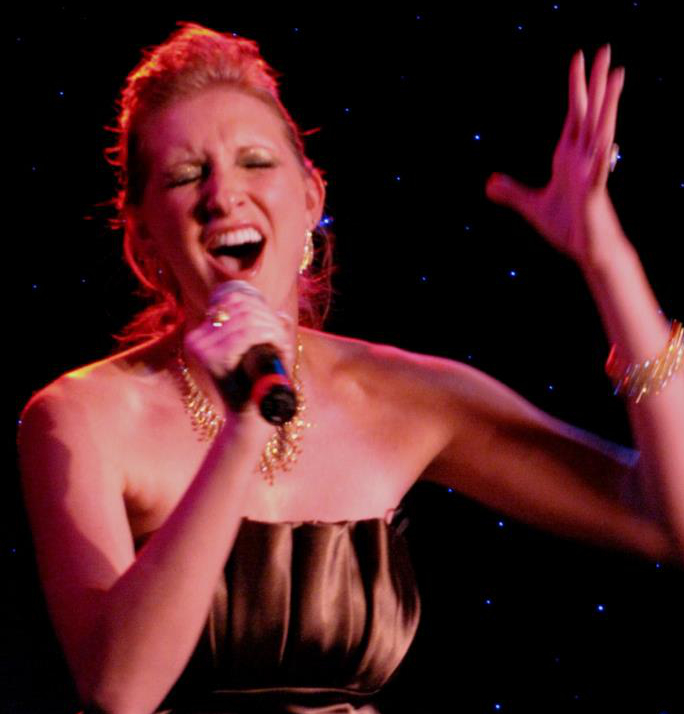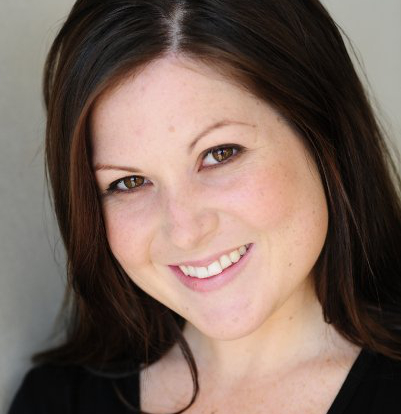This Is How To Stop Your Voice From Shaking
Whether you are doing some public speaking, delivering a big monologue in a play, or singing your heart out as a featured soloist, the nerves and pressure of the spotlight can send you on a hunt for ways to stop your voice from shaking. The good news is, I have a variety of suggestions for you to try.
If you’re more of a visual learner, check out the video below!
I could advise you to relax and breathe all day long, but you may not find that to be very useful advice. I get it. In the face of fear, “relax and breathe” can seem more like a platitude than actual advice. However, it probably is the very best thing you can do.
The role of relaxation
When you’re feeling the nerves and the pressure (and the sweat), it can cause you to tense up in various places of your body. Tension and performing are never a good combination, but some tension causes more problems than others.
For example, tension in your belly (quite normal under pressure) can cause you to take shallow breaths, which causes you to need more breath more often. This frequent shallow breathing can cause your body to behave as if it is in trauma which can increase anxiety and even lead to lightheadedness or hyperventilation.
Practicing relaxation and feeling the sensation of a relaxed belly PRIOR to being under pressure is extremely valuable for preventing a shaking voice under the spotlight.
Spend time each day practicing relaxing for 5-10 minutes. Flop a hand on your belly and a hand on your chest and make sure you are breathing into the hand on your belly. Then, periodically throughout your day, check in and make sure you’re still breathing with a relaxed belly rather than with a tightened one.
Tension in your jaw can cause you to struggle to open your mouth enough to make safe, healthy sounds come out with ease. In this case, I recommend practicing a brief facial massage any time you practice and a few minutes before you hit the spotlight. Take three fingers and lightly massage your jaw line, the joint where your jaws meet, and use a thumb to massage the underside of your tongue and chin.
The role of supporting your sound
When I teach singers & speakers how to support their sound, I explain The 4 Ps of Support which are the benefits this practice has on the voice. The 4 Ps of Support are:
P = PROTECT: when you support your sound, you are protecting your vocal cords from being damaged. Support allows a larger muscle group to take the initial impact of making sound so your tiny vocal cords can do what they’re meant to do – flap together to make sound.
P = PROLONG: when you support your sound, you are giving that big, huge breath you’ve taken in the ability to last all the way through to the end of your thought or phrase. Your support system regulates the breath so you have enough and don’t run out prematurely.
P = POWER: when you support your sound, you are giving your sound an extra boost of power and volume without having to strain or push; it just happens naturally from the act of supporting.
P = PERFORMANCE: when you support your sound, you are giving yourself the ability to control what happens to your voice. The support grounds you and allows you to direct your sound the way you want it to go. It is beneficial for pitch control, agility, and managing a shaky voice.
Besides the plethora of additional benefits, did you see that the final P, Performance, helps with a shaky voice? It’s because you are allowing a bigger muscle group to provide some stability, grounding, and control of the sound coming out of your mouth.
The role of coaching
I love helping singers, actors, and speakers do more with their performing than they knew was possible for them. One of the most common things I hear from clients after they achieve success in their performing is, “I couldn’t have done this without you”. Besides being one of the most awesome things to hear ever, this reminds me of the immense role coaching plays in the life of a performer.
When a performer works with a coach, they benefit from learning extra skills, of course, but the very act of learning the extra skill boosts confidence. When a performer learns something new and feels good about their newfound ability, by nature they feel more confident about their performance and are less likely to have the kind of shakiness in the voice that would have normally resulted.
Coaching also helps them to feel more prepared; a coach helps them know what to prepare, what to expect, and how to handle stresses and unexpected circumstances. This also helps the performer to feel more confident and less apt to have a shaky voice.
Sometimes I attend singing competitions with my clients. 100% of the time I go with them, other singers there come to me looking for any last-minute advice or tips. They see that they’ve missed out on something valuable and are trying to cram it into the moments before they go on stage. It breaks my heart each time, but it also reinforces in me the value of having a coach.
If you would like to have a conversation with me to see if private coaching is a good fit for you, visit www.getmypowerup.com to schedule a time to chat with me about it.

Download My FREE 5-Min VOCAL WARMUP
Warm up your voice with my 5-min POWER Practice.
Download for free, POWER up your voice for life.
In this warm-up you will get:
★ A 5-min MP3 warm-up containing multiple exercises on one download




















Have a question or something to say? You'll hear back from me right away!